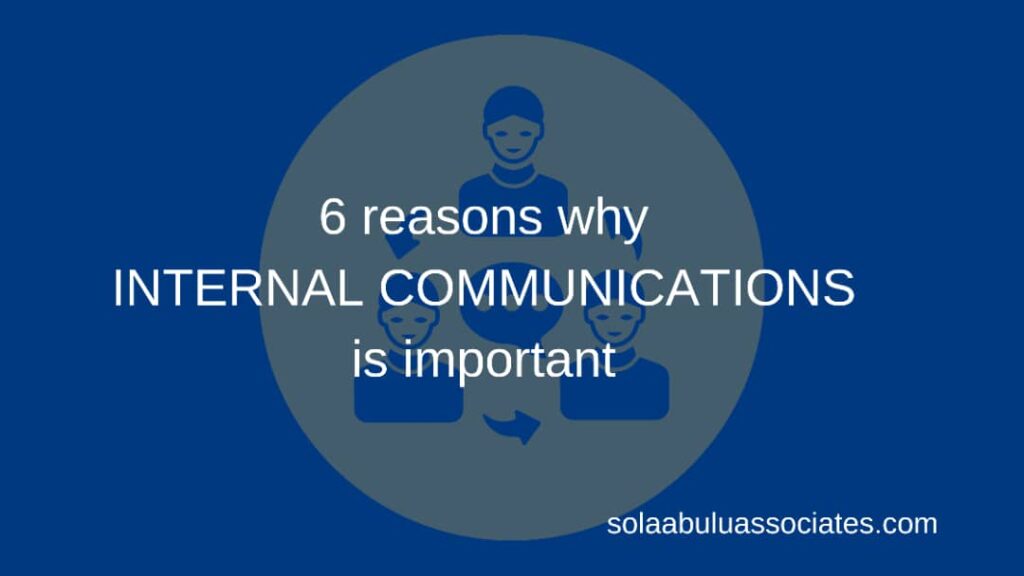Why is internal communications important?

There is a widespread lack of awareness about how purposefully executed internal communication can be a potential game changer for any organization. Many leaders see it as a tick-the-box exercise and not as a business enabler. Internal communications is concerned with understanding the perspectives of stakeholders within the business, organization or institution and winning their hearts through attentive listening and responding. So, it can be utilized to make employees and other internal stakeholders find positive and constructive expression in the workplace. These insights are very useful in understanding concerns and potential risks that could affect the business or organization’s financial bottom line. In this article, we have explored the importance of internal communications in today’s modern job market below.
Internal communications develops a cohesive culture and empowers employees to make the right decisions in line with the organization’s goals
~Sola Abulu
Below are some importance of internal communications:
- Internal communications has the power to transform an unproductive workforce to an efficient and collaborative organization or business setting. When businesses suffer low performance due to reasons like staff’s inability to deliver on the job, a strategic internal communications plan that is woven around the concerns and issues at stake can cause an intervention and increase performance across board. Changes in behaviour/performance, compliance and productivity are some of the results of getting internal communications right.
- It enable leadership communications and engagement with team members. Where issues and sentiments are increasing within the team, they can be discussed and resolved early to maintain a safe and collaborative work environment.
- For an organization or business with over 100 people working internally, having a strategic approach to internal communications is a necessity to achieve understanding and proper message delivery beyond the word-of-mouth approach.
- All employees can represent the ideals of the organization and culture easily. We debunked 8 common myths and misconceptions about internal communications in an article. You should read it.
- It enhances an enterprise-first behaviour, that is, all employees have a sense of ownership in how they handle their responsibilities.
- It defines the terms of engagement for different employees. Internal stakeholders and employees are of different levels with different qualifications. Therefore, internal communications set the framework that determines how communications is targeted to the security guard or department head as their intuition is very likely to differ. For employees with low employment qualifications like security guards, front desk personnel and the janitor, they may require over communication especially when it has to do with safety and risks.
Click here to learn about internal communications and organizational effectiveness.
Some skills required for this practice area include; creative writing and editorial skills. To develop and convey a message properly, the person responsible for your organization’s internal communication must be able to write clearly without ambiguity. Knowledge of communications strategy and planning is also very important in internal communications. Read this report on the state of internal communications in South Africa.

In the 4th cohort of our flagship strategic communications course, our principal consultant, Sola Abulu will be exploring communications project management and internal communications toolkit development in more details as they are also very relevant skills needed to deliver business or organizational outcomes through communications. Enrolment has begun and you can sign up here.
…………………………………………….
Sola Abulu & Associates is a strategy and communications consulting and training firm committed to enabling businesses, brands and organizations to achieve their objectives through strategic communications, organizational effectiveness and reputation risk management
Chat with us for more information on our courses
